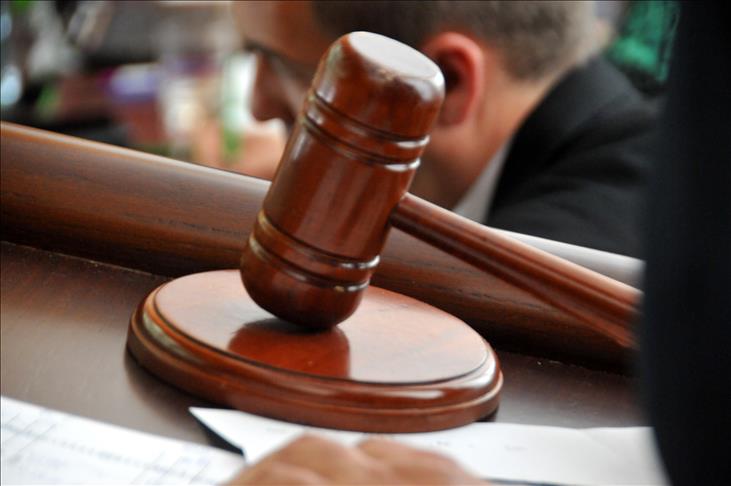
By Lauren Crothers
PHNOM PENH
The Cambodian government has been taken to task in a lengthy report by Amnesty International for two years of "violent repression."
Researchers for the human rights organisation found that between Nov. 2013 and May of this year, people’s basic rights to assemble were stifled, excessive and sometimes fatal force was used to quash protests.
Secretive “para-police” units and security guards were also used to lash out, it added.
According to Amnesty, these units “played a central role in the policing—and often the violent dispersal of demonstrations in Phnom Penh.”
“When responding to demonstrations they usually accompany other security forces, such as police or gendarmerie, and often wear motorcycle helmets and carry batons or sticks,” the report said.
Reached by telephone Thursday, Council of Ministers spokesman Phay Siphan said the Amnesty document was “just a report,” and said the government had to respect the courts as they try to “figure out cause and effect.”
“Leave the courts to do their job—who provokes and who does not cooperate?” he told Anadolu Agency. “That’s the issue. We don’t accuse anyone; we try to keep stability and improve the rule of law.”
Asked whether or not this then justified the lethal use of force against civilians, Siphan said he did not have the “competence to justify anything,” and that those who do question can “say anything they like.”
During the reporting period, seven people were shot dead during three separate demonstrations.
In Sept. 2013, a bystander was shot in the head and died on a street in Phnom Penh as people who had attended a political gathering earlier in the day tried to cross a bridge that had been blocked off by the police. As tensions boiled over, rocks were thrown in the direction of the police, who responded with live fire.
In November of that year, a rice seller was shot dead as she worked at her food cart near a protest that had erupted after garment workers marching for higher wages were prevented from crossing a bridge toward the centre of the city.
She too fell victim to a volley of live ammunition used by the police who were dispatched to crush the demonstration.
Then, in Jan. 2014, five more people were shot dead by military police responding to a series of garment strikes that bloomed in the capital as calls for an increase to the then-$100 minimum wage increased in noise and frequency.
“The report reveals a pattern of violations: the imposition of arbitrary restrictions on freedom of peaceful assembly; the unnecessary and excessive use of force by security forces policing assemblies," Amnesty said.
It added that "there was a culture of impunity surrounding human rights violations committed in the context of assemblies and the use of the judiciary to harass those who organize and participate in assemblies.”
The group said its concerns about these practices should be addressed, and that the law enforcement sector is in urgent need of reform.
Anadolu Agency website contains only a portion of the news stories offered to subscribers in the AA News Broadcasting System (HAS), and in summarized form. Please contact us for subscription options.







